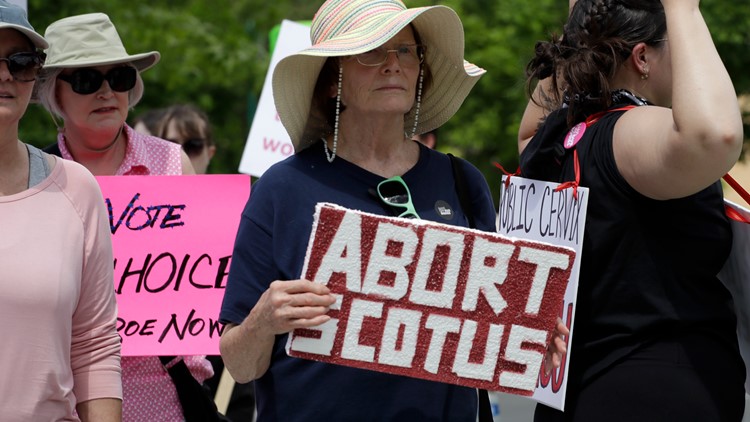Tennessee's attorney general's office on Monday said it's still unknown when the state's anti-abortion "trigger ban" will go into effect, but some state lawmakers are raising alarm that the ban has no exceptions for victims of rape or incest.
Tennessee has been limiting abortion as early as six weeks into pregnancy — when most women don't know they're pregnant — ever since the U.S. Supreme Court overturned the landmark Roe v. Wade abortion rights case in June.
However, the state also has another abortion ban designed to restrict abortion almost entirely. But that law can't be enacted until the Supreme Court enters a judgment on the Roe ruling, which is expected soon. Doing so will start the clock on Tennessee's trigger law and allow it to be implemented within 30 days. Idaho and Texas have similar timelines, while a handful of other states' trigger laws have been delayed due to legal challenges.
Republican Attorney General Herbert Slatery's office initially said the state could begin enforcing the trigger law in mid-August, but nearly a month after making that estimate, a spokesperson said they were "not sure" if that timeline was still in place.
Meanwhile, Democratic lawmakers say they plan on introducing several bills during the next legislative session to expand the list of exemptions under the trigger law, as well as adding patient-doctor privacy protections for telehealth care.
"Pregnancy is something that should never be forced on a family," said Democratic Sen. Heidi Campbell during a news conference earlier this year.
Currently, Tennessee's trigger law only makes an exception when an abortion is necessary to prevent the woman's death or "serious risk of substantial and irreversible impairment of a major bodily function." Notably, it specifies that a woman's mental health does not qualify for an exemption, nor would rape or incest.
The exemptions are essentially the same under the state's ban halting abortion once fetal cardiac activity is detected. Both measures would make performing an abortion a felony and subject doctors to up to 15 years in prison if convicted.
This has raised alarm among some in the medical community, who argue the state's sole exception to save a woman's life doesn't give enough definitions for doctors to determine how threatened the patient's life must be before performing an abortion would be allowed.
Republican Sen. Rusty Crowe, chairman of the Senate Health and Welfare Committee, told a legislative panel last week that he thinks the statute should be tweaked to prevent confusion inside the medical community.
"I will say as chairman of health, I am getting some communications from totally different groups ... that do think we probably should fine-tune the trigger bill somewhat to make sure that we don't get our docs in trouble when they're trying to follow the law," Crowe said, who was a co-sponsor of the legislation when it cleared the Statehouse in 2019.
It's unknown how those efforts will be met inside the GOP-dominant General Assembly.
On Monday, a spokesperson for Senate Speaker Randy McNally — the top Republican of the chamber — said the Republican "currently sees no issue with the trigger law going into effect as it was passed three years ago."
And last week, Republican Gov. Bill Lee refused to answer questions by reporters if he supported tweaking the trigger law, particularly sidestepping on whether he supported exempting children who were raped and then became pregnant.
In 2019, Democratic lawmakers attempted to amend Tennessee's trigger law to allow an exception for rape of a child, but the Republican supermajorities in both chambers ultimately spiked that suggestion. Lee then signed the bill without raising concerns about the law's lack of exemptions.
Yet that issue has once again resurfaced after news broke of a 10-year-old girl who traveled from Ohio to Indiana for an abortion, which soon became a flashpoint in the national debate over access to the procedure.
"Our focus right now is the implementation of the current law. And there hasn't been a discussion of any revisions to that law," Lee said.



